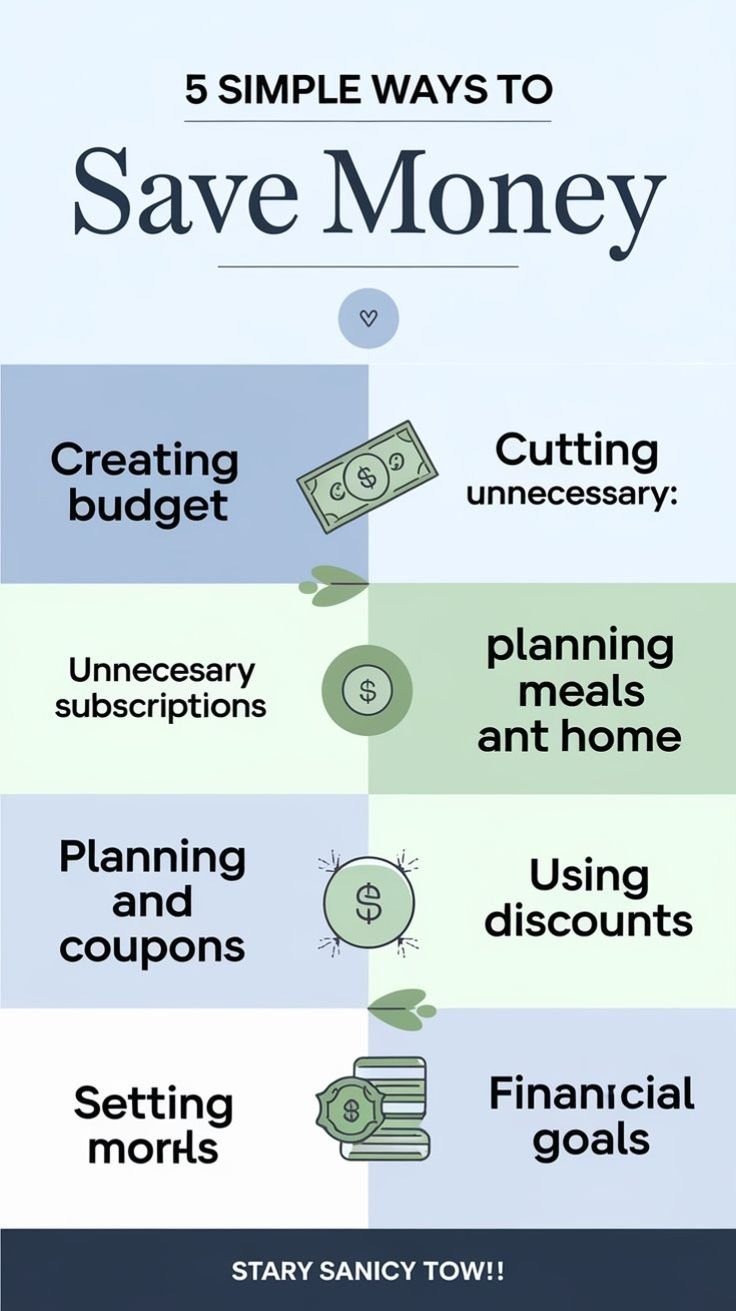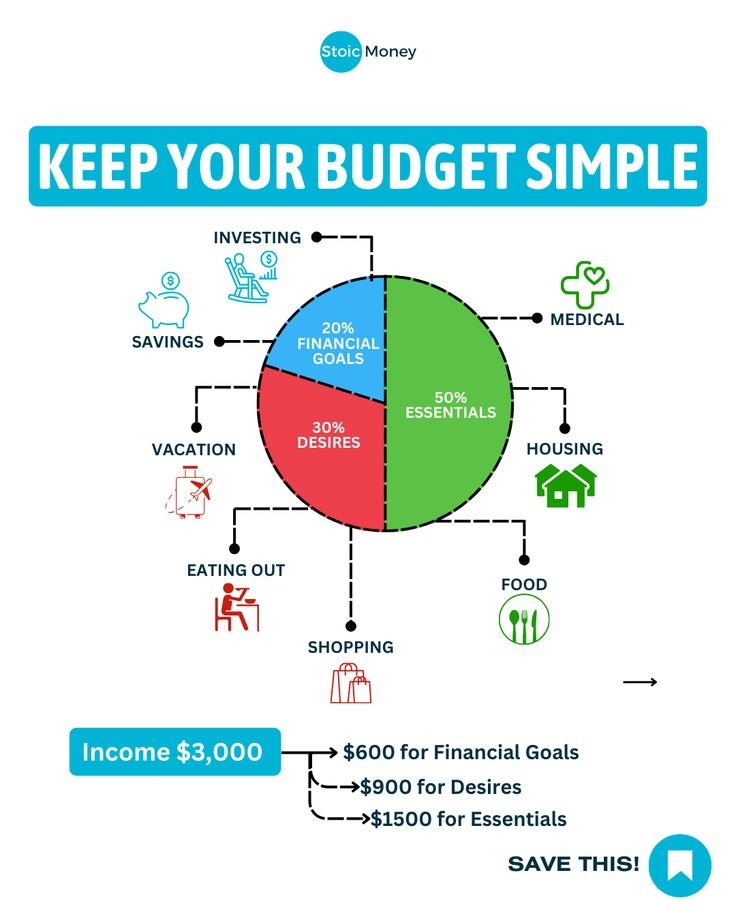Managing personal finances effectively is essential for achieving financial independence and security. However, many individuals fall into common traps that can derail their financial goals. From poor budgeting to neglecting retirement planning, these mistakes can have long-lasting effects on your financial health. In this article, IdeasUnfold outlines the top 10 personal finance mistakes to avoid and offers practical advice to help you stay on track.
1. Failing to Budget Properly
One of the most common financial mistakes people make is not having a budget or failing to stick to it. A budget is the blueprint of your financial plan; it helps you track your income, manage expenses, and ensure that you’re saving for future goals.
How to Avoid It: Start by creating a simple budget using the 50/30/20 rule: allocate 50% of your income to necessities, 30% to discretionary spending, and 20% to savings and debt repayment. Regularly review and adjust your budget to stay aligned with your financial goals.
2. Ignoring Emergency Savings
Many individuals neglect to build an emergency fund, which can lead to financial distress during unexpected events, such as medical emergencies, job loss, or urgent repairs. Without an emergency fund, you may be forced to rely on credit cards or loans, which can accumulate debt quickly.
How to Avoid It: Set aside 3-6 months’ worth of living expenses in a liquid, accessible savings account. Start small, if necessary, but aim to consistently contribute to this fund until you reach your target amount.
3. Accumulating High-Interest Debt
Carrying high-interest debt, particularly credit card debt, can significantly erode your financial progress. The interest on credit card balances can accumulate quickly, making it harder to pay off principal balances and leading to a cycle of debt.
How to Avoid It: Pay off high-interest debts first, such as credit cards, and try to avoid accruing new debt. Consider transferring high-interest balances to a lower-rate credit card or a personal loan to reduce interest payments.
4. Not Saving for Retirement
Many people delay saving for retirement, assuming they have plenty of time to start later. However, waiting to save for retirement can cost you in the long run, as compound interest has less time to work its magic on your investments.
How to Avoid It: Start contributing to retirement accounts such as a 401(k) or IRA as soon as possible. Take advantage of employer contributions if available and aim to contribute at least 15% of your pre-tax income toward retirement savings.
5. Living Beyond Your Means
Spending more than you earn is a recipe for financial trouble. It’s easy to fall into the trap of lifestyle inflation, where your expenses rise as your income increases, leaving little room for saving or investing.
How to Avoid It: Live below your means by controlling discretionary spending. Avoid impulse purchases and focus on long-term financial goals instead of immediate gratification. Adjust your lifestyle as your income grows to ensure you’re consistently saving and investing.
6. Failing to Diversify Investments
Another costly mistake is not diversifying your investment portfolio. Putting all your money into one asset class or sector can expose you to unnecessary risk. For instance, if you invest heavily in one stock or a single industry, a downturn in that sector could significantly impact your wealth.
How to Avoid It: Diversify your investments across different asset classes, such as stocks, bonds, real estate, and commodities. Consider low-cost index funds or ETFs that offer broad market exposure and automatically diversify your holdings.
7. Overlooking Insurance Coverage
Skipping or underestimating the importance of insurance is a financial mistake that can lead to serious consequences. Whether it’s health insurance, life insurance, or property insurance, the right coverage can protect you and your loved ones from financial ruin.
How to Avoid It: Review your insurance needs regularly and ensure that you have adequate coverage for health, life, home, and auto. Evaluate your policies each year to make sure they align with your current financial situation.
8. Not Monitoring Your Credit Score
Your credit score plays a crucial role in your financial life, affecting everything from loan eligibility to interest rates. Failing to monitor and improve your credit score can result in higher borrowing costs and difficulty obtaining loans.
How to Avoid It: Regularly check your credit report for any discrepancies and take steps to improve your credit score. Pay bills on time, reduce your credit card balances, and avoid opening unnecessary new accounts.
9. Making Emotional Investment Decisions
Emotional decision-making in investments is a common mistake, especially during times of market volatility. Fear and greed can lead to impulsive decisions, such as selling investments during market dips or chasing “hot” stocks without proper research.
How to Avoid It: Stick to a long-term investment strategy and avoid reacting to short-term market fluctuations. Educate yourself about market trends and stay disciplined, even during times of uncertainty. Consider working with a financial advisor to guide your investment choices.
10. Not Seeking Professional Financial Advice
Many people make the mistake of managing their finances without professional guidance. While self-education is valuable, a financial advisor can provide personalized insights, optimize your tax strategies, and ensure that your financial goals align with your investment and retirement plans.
How to Avoid It: Seek the expertise of a certified financial planner or advisor, especially for complex financial decisions. A professional can help you with budgeting, investing, and planning for long-term financial success.
Conclusion: Avoiding Financial Pitfalls for Long-Term Success
Avoiding common personal finance mistakes can significantly improve your financial stability and help you build wealth over time. By budgeting effectively, saving consistently, and making smart investment decisions, you’ll be on the path to financial security. Monitor your progress, make adjustments as needed, and seek professional advice to stay on track with your financial goals.




